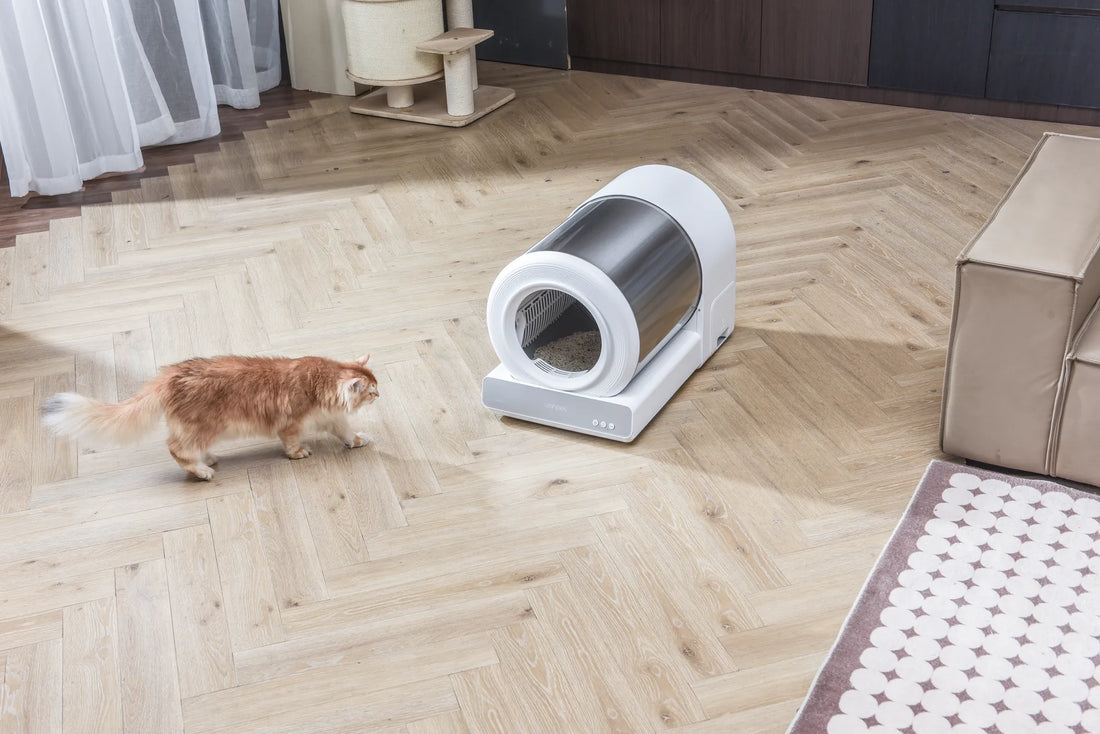If you've ever found yourself asking, 'Why won't my cat use the litter box?' you're not alone. This common issue can be both perplexing and frustrating for cat owners. Understanding the reasons behind this behavior is the first step toward finding a solution that works for both you and your feline friend.
Medical Issues
One of the first things to consider when your cat stops using the litter box is whether there might be an underlying medical issue. Cats are masters at hiding pain and discomfort, so it's essential to rule out any health problems that could be causing this behavior.
Urinary tract infections (UTIs), bladder stones, and kidney issues are common culprits. These conditions can make urination painful, leading your cat to associate the litter box with discomfort. If your cat is straining to urinate, urinating more frequently, or has blood in their urine, it's crucial to consult a veterinarian immediately.
Other medical issues, such as arthritis or mobility problems, can also make it difficult for your cat to access the litter box, especially if it's located in a hard-to-reach area. In such cases, providing a litter box with lower sides or placing it in a more accessible location can make a significant difference.
Stress and Anxiety
Cats are creatures of habit, and any changes in their environment can lead to stress and anxiety, which may manifest as litter box avoidance. Common stressors include moving to a new home, the introduction of a new pet or family member, or even changes in your daily routine.
When a cat is stressed, they may seek out alternative places to relieve themselves, such as soft surfaces like carpets or bedding. To help alleviate stress, try to maintain a consistent routine and provide your cat with a safe, quiet space where they can retreat and feel secure.
Additionally, using pheromone diffusers or sprays can help create a calming environment for your cat. These products mimic the natural pheromones that cats produce, helping to reduce anxiety and promote a sense of well-being.
Litter Box Preferences
Cats can be quite particular about their litter box preferences, and even small changes can lead to avoidance. The type of litter, the size and shape of the box, and its location all play a role in whether your cat will use it.
Some cats prefer unscented litter, while others may be sensitive to certain textures. Experimenting with different types of litter can help you find one that your cat is comfortable with. Similarly, the size of the litter box should be appropriate for your cat's size, with enough room for them to turn around and dig.
The location of the litter box is also crucial. Cats prefer a quiet, low-traffic area where they can do their business in peace. Avoid placing the litter box near noisy appliances, in high-traffic areas, or close to their food and water bowls.
Cleanliness
A dirty litter box is one of the most common reasons why cats avoid using it. Cats are naturally clean animals, and they may refuse to use a litter box that hasn't been cleaned regularly.
To keep your cat happy, scoop the litter box at least once a day and perform a thorough cleaning with mild soap and water on a weekly basis. Avoid using harsh chemicals or strong-smelling cleaners, as these can be off-putting to your cat.
If you have multiple cats, it's essential to provide one litter box per cat, plus an extra one. This ensures that each cat has access to a clean box and reduces the likelihood of territorial disputes.
Behavioral Issues
In some cases, litter box avoidance may be due to behavioral issues. Cats may develop negative associations with the litter box due to past experiences, such as being startled while using it or being punished for accidents outside the box.
To address behavioral issues, it's important to create positive associations with the litter box. Encourage your cat to use the box by placing them in it after meals or playtime and rewarding them with treats or praise when they use it correctly.
If your cat continues to have accidents outside the box, avoid punishing them, as this can increase anxiety and worsen the problem. Instead, clean up accidents thoroughly with an enzymatic cleaner to remove any lingering odors that might attract your cat back to the same spot.
Environmental Enrichment
Providing your cat with a stimulating environment can also help reduce litter box avoidance. Cats that are bored or under-stimulated may develop behavioral issues, including inappropriate elimination.
Ensure that your cat has plenty of toys, scratching posts, and climbing structures to keep them entertained. Interactive play sessions with you can also help burn off excess energy and reduce stress.
Additionally, consider creating a 'cat-friendly' space with cozy hiding spots, perches, and window views. A happy, content cat is more likely to use their litter box consistently.
Consulting a Professional
If you've tried all the above solutions and your cat still won't use the litter box, it may be time to consult a professional. A veterinarian or a certified animal behaviorist can help identify any underlying issues and provide tailored advice for your specific situation.
In some cases, medication or behavioral therapy may be necessary to address the problem. A professional can also help you develop a comprehensive plan to modify your cat's behavior and create a positive litter box experience.
Remember, patience and consistency are key when addressing litter box issues. With the right approach, you can help your cat feel comfortable and confident using their litter box once again.
Understanding why your cat won't use the litter box is the first step toward resolving this common issue. By addressing potential medical problems, reducing stress, and creating a positive litter box environment, you can help your feline friend feel more comfortable and secure. With a little patience and persistence, you can restore harmony to your home and ensure that your cat is happy and healthy.













